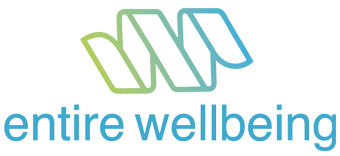High Blood Pressure (Hypertension) – a Developed World Pandemic
Blood pressure is a measure of the pressure that is produced within your blood vessels as the heart pumps. The data shows that a considerable proportion of the developed world’s population have higher than ideal blood pressure, written as systolic (the pressure created in the blood vessels during contraction of the heart) over diastolic (the pressure in the blood vessels when the heart rests in between beats). Optimal blood pressure is less than 120/80 mmHg (although less than 90/60 is classified as low blood pressure, which can cause other problems). We know that hypertension is extremely rare with traditional hunter-gatherers.
Hypertension is a significant risk factor for strokes, cardio vascular disease and type 2 diabetes. The data suggests that even mild hypertension (140-159/90-99 mmHg) can roughly double your risk of presenting with cardio vascular disease. Often there are no overt symptoms associated with hypertension, although headaches, chest pain, ear noise, nosebleeds, an irregular heartbeat, tiredness and vision changes may indicate an issue. Checking your blood pressure regularly is easy and affordable to do at home – home monitors start at £15.
So what should you do if you are presenting with high blood pressure? Should you resort to taking a medication? Not necessarily, as data from the Cochrane Collaboration (considered the ‘gold standard’ opinion, as it reviews the outcome of multiple randomised clinical trials) shows that the use of blood pressure medications for mild hypertension ‘did not reduce coronary disease, stroke or total cardiovascular events’ and that up to 9% of patients experienced ‘adverse effects’. For mild hypertension, the best place to start is by shifting your diet to a natural whole foods approach. This means removing all junk foods and focusing on the consumption of wholefoods – grass-fed meat/wild fish and seafood, nuts and seeds, vegetables, fruits, herbs and spices and drinking herbal teas/filtered water. By doing this you are likely to lose weight, if over weight, reduce the intake of damaged fats (heated vegetable oils), sugar, caffeine and alcohol, which are all connected to hypertension, as well as providing the body with sufficient levels of nutrients. What about salt? The evidence connecting salt to heart disease is weak and in fact restricting salt (mineral salt not table salt) intake may in fact be harmful to our health!
Finally, Dr Reaven who spent the last 60 years studying insulin resistance (IR), which is the condition where the body is unable to tolerate more than the absolute minimum amount of carbohydrate per day, without developing elevated levels of insulin in the blood; suggested that IR is the root cause of not only diabetes, but also hypertension, strokes, obesity, heart attacks and possibly even cancers and dementia. IR is more common than you might expect, which is typically estimated to be around 6% of the population. According to Dr Kraft, ‘to properly diagnose IR, one needs to measure changes in blood insulin and glucose concentrations for 2 to 5 hours after the ingestion of 100 grams of glucose. He showed that 75% of over 4,000 individuals who had ‘normal’ glucose tolerance as measured by conventional criteria showed an inappropriate insulin response, indicating that they were IR’ (Quoted directly from the Lore of Nutrition – Challenging Conventional Dietary Beliefs by Tim Noakes and Marika Sboros). That is a remarkable observation and may in fact be central to the development of not only hypertension but also virtually all chronic disease.

 RT
RT